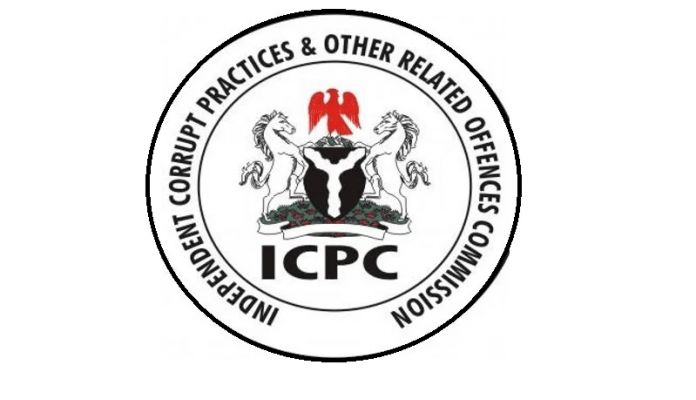The incidence of unbridled corruption and financial crimes in Nigeria have continued to undermine democratic institutions, retard economic development and contribute to political instability. It was in an effort to stave off the menace that led to the establishment of Anti-graft agencies, particularly the Independent Corrupt Practices and Other Related Offences Commission (ICPC), and the Economic and Financial Crimes Commission(EFCC) to sanitize the system, protect, and preserve democracy.
The ICPC Act 2000 mandates the Commission to receive and investigate reports of corruption and in appropriate cases prosecute the offender(s), to examine, review and enforce the correction of public bodies, with a view to eliminating corruption in public life. The Commission’s task also includes educating and enlightening the public on and against acts of corruption and related offences with a view to enlisting and fostering public support for the fight against corruption. The EFCC Act, which was first enacted in 2002 but amended in 2024 mandates the Anti-graft agency to combat economic and financial crimes, thereby enabling the commission to prevent, investigate, prosecute and penalize economic and financial crimes.
As much as these agencies have been striving to live up to their mandates, through investigation of petitions, filing of cases in court and securing of convictions, they seem to be faced with challenges that have made their task laborious. Some of these challenges were brought to the front burner recently by the chairman of ICPC, Dr. Musa Adams Aliyu, SAN, when he presented the Commission’s performance scorecard over the past year to the Senate Committee on Anti-Corruption and Financial Crimes.
According to Dr. Aliyu, SAN, the problem of inadequate funding is impacting the Commission’s ability to pursue investigation, legal proceedings and public education efforts. He explained that legislative limitations requiring amendments to the ICPC Act, along with staffing and welfare needs are hampering the attainment of set goals.
He listed other challenges confronting the Commission to include the slow pace of court processes which is hampering the the swift resolution of corruption cases and undermining public trust in anti-graft corruption fight. He itemised difficulty posed by cases involving politically exposed persons, where external influences can challenge the impartiality and integrity of investigation.
Considering the critical nature of the anti-graft agencies in the protection and sustenance of Nigeria’s democracy and economic development, there is an urgent need to strengthen the agencies and embolden them towards the attainment of their constitutional mandate. The hindrances which they encounter apparently erode the significant inroads they are making into the fight against corruption and financial crimes, which often leads to statements such as ; “ corruption is fighting back” amidst the efforts of the agencies.
One of the problems confronting the anti-graft agencies that needs urgent redress is the shortage of personnel. The acute shortage of personnel was raised by the Chairman of the EFCC, Ola Olukoyede, at the media conference where he presented the scorecard of his one year in office. He explained that while the Commission is handling over 20,000 cases, its staff strength is just 5000. The issue of understaffing must be tackled to ensure effective and efficient operation of the agencies.
Inadequate funding is also a challenge that should be addressed as proper funding will enable the agencies to carry out investigations, pursue legal proceedings and embark on public education efforts. Equally important is a review of the salaries and welfare benefits of the staff to boost their morale for sustainable productivity.
To further strengthen the agencies, we advocate for an amendment of the Act establishing the agencies, particularly the ICPC Act, to remove the legislative limitations hindering the effective operation of the Commission. There should be an urgent amendment of plea bargain and interference by politically exposed persons interference with integrity of investigation. The Act should be amended to expunge plea bargain to make sure indicted persons face the full wrath of the law, while the act of impunity usually exhibited by politicians and high profile individuals in trying to challenge the impartiality of investigations should be curtailed.


